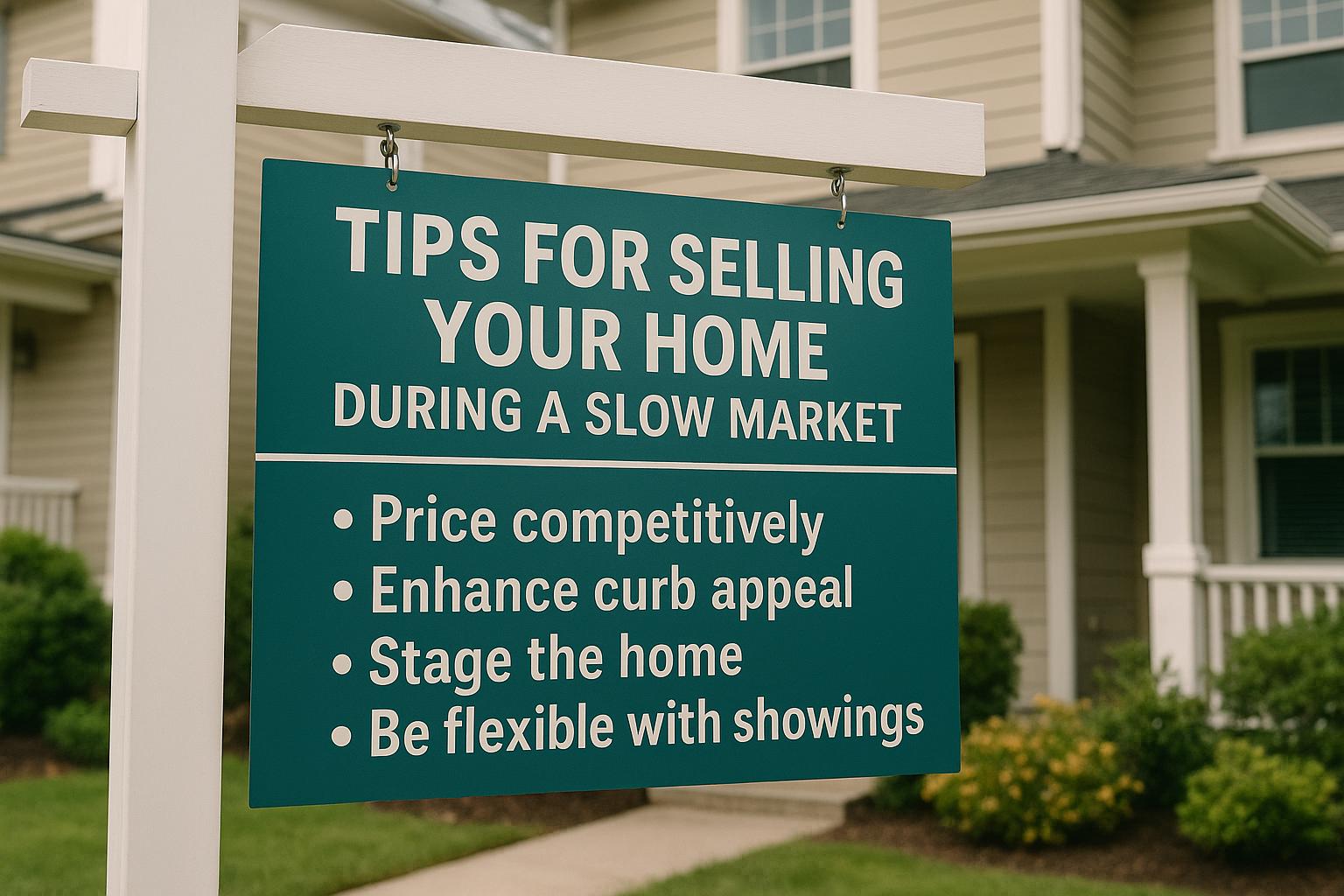
In a sluggish real estate market, selling your home can be significantly more challenging than during periods of high demand. When buyers have a multitude of properties to choose from, it inevitably leads to longer selling times and can result in potentially lower offers for sellers. However, by gaining a thorough understanding of market dynamics and employing strategic measures, sellers can improve their chances of executing a successful sale.
The importance of pricing cannot be overstated, especially during a market slowdown. To determine a competitive price point, it’s imperative to conduct a comprehensive comparative market analysis. This involves examining recent transactions involving properties similar to yours within the same area. Consulting a real estate professional can provide invaluable insights into the most recent sales data and market conditions. It may even be beneficial to set your home’s price slightly below the current market value to generate greater interest, drawing in potential buyers who are looking for deals.
The significance of curb appeal should not be underestimated, as it forms a potential buyer’s initial impression. Simple yet effective improvements, such as enhancing landscaping, applying fresh paint to the front door, and ensuring an unobstructed pathway, can have a substantial impact. These enhancements convey that the property is well-maintained and welcoming, a vital perception when trying to attract buyers’ attention.
An often-overlooked step in selling a home is the practice of staging. Staging can completely transform the presentation of your home, making it considerably more appealing to prospective buyers. Consider renting contemporary furniture or hiring a professional stager to emphasize your home’s best features. Pay particular attention to lighting and decor choices, as these elements contribute to a warm, welcoming atmosphere. Successful staging allows potential buyers to envision themselves residing in the space, which can significantly impact their purchasing decision.
An adept marketing strategy is of paramount importance in a slow market. Utilizing online platforms like Zillow or Realtor.com to list your property can significantly broaden your reach. High-quality photographs coupled with comprehensive descriptions are key components that can significantly attract more viewers. Additionally, leveraging social media channels to reach a wider audience can be very effective. Hosting virtual tours can also be an excellent strategy to engage potential buyers who may not be able to visit the property in person due to geographical constraints.
In a slow market, buyers might be more inclined to engage in negotiation. Therefore, sellers should be prepared to handle offers and counteroffers with tact and flexibility. Flexibility could be the crucial element that helps close a deal. To make your property more attractive, consider offering incentives such as covering a portion of the closing costs, which can be an enticing proposition for prospective buyers.
The knowledge and experience that real estate agents bring to the table can be invaluable. They possess a deep understanding of market trends and can provide customized advice tailored to your particular situation. Hiring a seasoned real estate agent can be beneficial when navigating the complexities of a slow market. They are equipped to offer insights and devise strategies that enhance the likelihood of a successful transaction, thereby ensuring a smoother selling process.
Implementing these strategies stands to have a positive impact on your ability to sell your home during a sluggish market period. While the selling process may prove to be longer and demand more effort, devoting attention to these critical aspects will increase your chances for success. It’s important to approach the situation with both patience and diligence, understanding that selling a home in a slow market is a journey that requires perseverance and strategic action.
The overarching lesson here is that preparation and flexibility are key elements in overcoming the challenges presented by a slow real estate market. By setting a realistic and attractive price, enhancing your home’s curb appeal, effectively staging and marketing the property, and demonstrating a willingness to negotiate, you can greatly improve your odds of closing a successful sale. Consulting with experienced professionals further supports your endeavor, adding a level of expertise and strategic insight that can make all the difference.
Remaining communicative and responsive to potential buyers, coupled with a willingness to adapt to their needs and market conditions, also serves to enhance your standing in the eyes of interested parties. Ultimately, the goal when selling in a slow market is to make your property as appealing and accessible as possible, ensuring that it stands out among the competition.
Comments are currently closed.